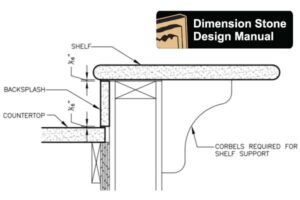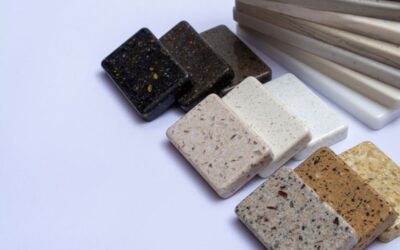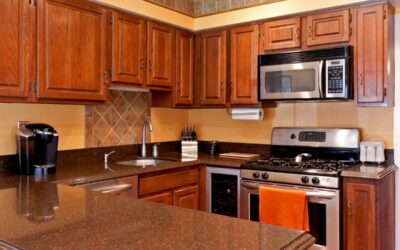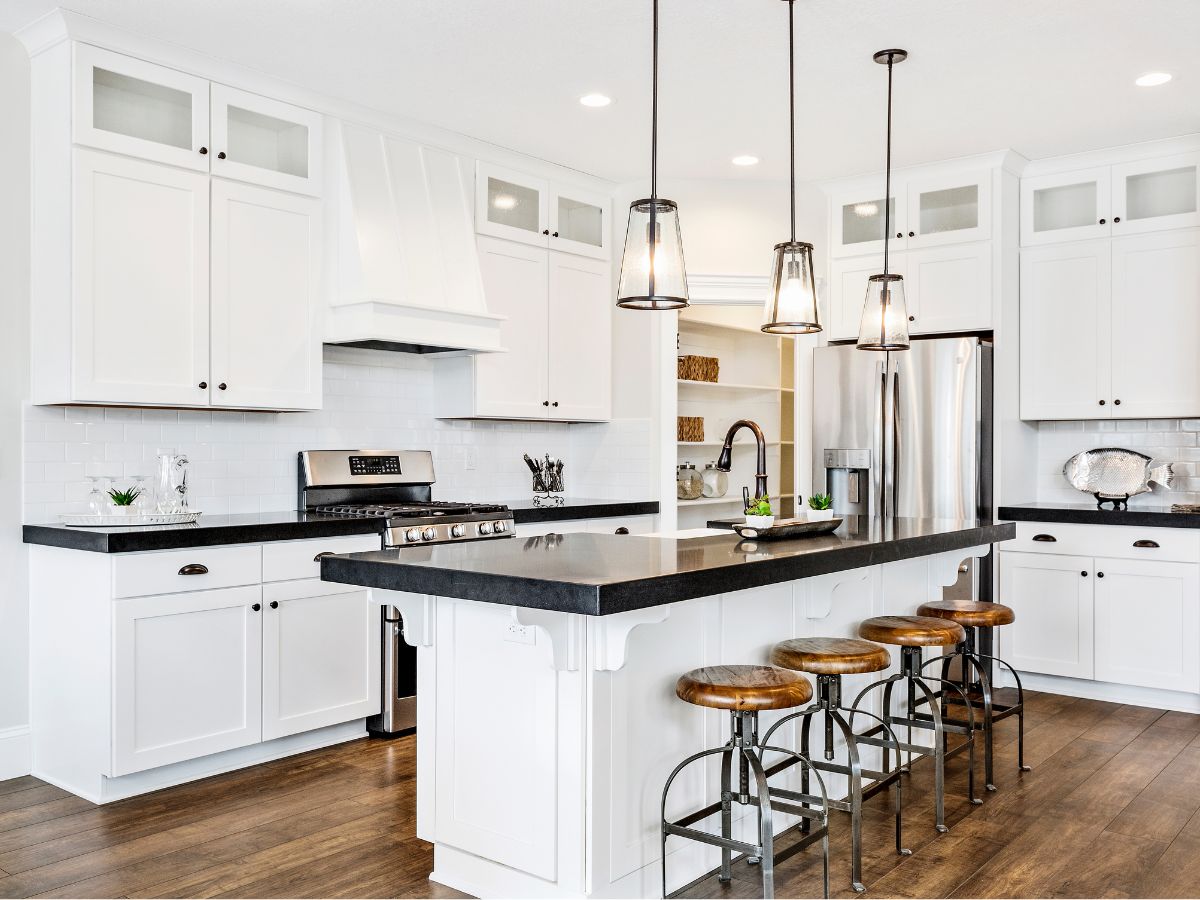how thick are granite countertops

As an Amazon Associate, I earn from qualifying purchases
Introduction:
How thick are granite countertops? Granite countertops are usually accessible in two standard thicknesses: 20mm (roughly 0.79 inches) and 30mm (around 1.18 inches). The business standard today is around 3 cm (roughly 1.18 inches) for granite countertops.
The Basics of Granite Countertop Thickness

Granite countertops regularly come in two standard thicknesses: 20mm (roughly 0.79 inches) and 30mm (around 1.18 inches). In any case, the most well-known thickness for granite countertops in the business today is 3 cm (around 1.18 inches)
The thickness you pick can rely upon different elements, including the plan and usefulness of your space. For example, 2 cm stone ledges have been the business standard for a long time. However, they require extra work during establishment, for example, the requirement for a compressed wood base and overlay of the forward-looking edges. Then again, 3 cm granite countertops, which have become more famous as of late, offer a weightier feel, need no extra help or overlay, and permit the shade of the ledge to mix more flawlessly with the remainder of the kitchen.
It’s vital to take note that while thicker sections might appear to be more costly because of the expanded material, the establishment is easier, and the creation costs continue as before, settling on them a savvy decision. Be that as it may, the ultimate choice ought to be founded on your inclination, the plan of your kitchen, and the guidance of your countertop proficiency.
Factors Influencing Thickness Choice
The decision of granite countertop thickness is affected by a few elements. Feel and style assume a huge part, with thicker ledges frequently supplementing contemporary and present-day plans. Strength is one more key thought, as thicker sections are, by and large, more grounded and less inclined to break. Cost is a variable, as thicker pieces require more material and are hence more costly. The weight and backing necessities of the countertop are likewise significant, as thicker ledges are heavier and need sufficient help. Establishment and fit contemplations, customization prospects, and industry guidelines additionally impact the decision of thickness. Eventually, the choice ought to adjust these elements as per individual inclinations and explicit undertaking necessities.
Installation and Support Requirements for Different Thicknesses

The establishment and backing prerequisites for granite countertops fluctuate given their thickness. 20mm (roughly 0.79 inches) stone ledges frequently need extra help during establishment, for example, a pressed wood base. Then again, 30mm (around 1.18 inches) granite countertops, which are more normal, can be introduced straightforwardly on top of cupboards without extra help. Even with paying little mind to thickness, all granite countertops require a strong and durable base for establishment.
For overhangs north of 12 inches, most fabricators suggest support sections. On the off chance that the base isn’t sufficiently large, emotionally supportive networks might be required, even in the absence of a lot of shade. For walls with metal studs, extra wood or pressed wood might be expected to help the sections. In this way, the decision of thickness ought to think about the establishment and backing prerequisites alongside different elements like feel, sturdiness, and cost.
Cost Implications of Thickness Choices
The expense of granite countertops is affected by their thickness. Thicker chunks are, by and large, more costly due to the extra material required. For example, a 20mm thick granite worktop can cost around £100-£150, while a 30mm thick stone ledge can cost between £150-£250. Notwithstanding, a more slender countertop might need extra help or overlay, which can add to the general expense. It’s additionally critical to take note that the establishment expenses can differ in light of the thickness of the stone, with thicker pieces possibly being more troublesome and costly to introduce. In this manner, while thicker ledges might have a higher forthright expense, they could offer better strength and style, possibly offering better long-haul benefits.
Durability and Maintenance: Does Thickness Matter?
The thickness of a granite countertop does impact its solidness and upkeep necessities. Thicker rock pieces, like those 3 centimetres thick, are by and large more sturdy and less inclined to breaking than more slender ones. Notwithstanding, the life expectancy of a 2-centimetre thick stone ledge can be like that of a 3-centimetre one if it is appropriately kept up with
Upkeep schedules for granite countertops are, by and large, the equivalent of paying little mind to thickness; however, thicker pieces might require more sealant and cleaning. It’s essential to take note that while rock is a solid material, it can, in any case, be scratched by rough materials and harmed by delayed openness to high temperatures. In this manner, paying little heed to thickness, granite countertops ought to be appropriately fixed, cleaned with delicate cleaners, and shielded from likely harm by utilizing cutting sheets and trivets.
Making the Right Thickness Choice for Your Home
Choosing the right thickness for your granite countertops relies upon a few variables. The financial plan is a key thought, as thicker countertops are, for the most part, more costly because of expanded material and work costs. Feel likewise assume a part, with thicker countertops offering a more significant and extravagant appearance, while more slender ones can give a smooth, present-day look. Solidness and strength are significant, with thicker countertops offering added versatility.
The style of your kitchen, the particular utilization of the ledge, and weight contemplations likewise impact the choice. For example, thicker countertops are heavier and may need more help, while more slender ones are lighter and overwhelm kitchen structures. At last, the decision ought to adjust these elements as per your inclinations and the particular prerequisites of your task.
How thick are granite countertops?

Granite countertops normally come in standard thicknesses of 20mm (around 0.79 inches) and 30mm (roughly 1.18 inches). The business standard for stone ledges is around 1 and 1/4 inch (or 3 centimetres), albeit a few mortgage holders’ installers utilize the past norm of 2 cm (roughly 0.79 inches). Thicker chunks are, for the most part, more sturdy and less inclined to break. Be that as it may, the decision of thickness can likewise be affected by stylish inclinations, cost contemplations, and explicit establishment necessities.
Read More :
- bathroom sink faucet parts diagram
- kitchens with taj mahal quartzite
- 20 kitchen tools and equipment
- is taj mahal quartzite outdated
As an Amazon Associate, I earn from qualifying purchases











